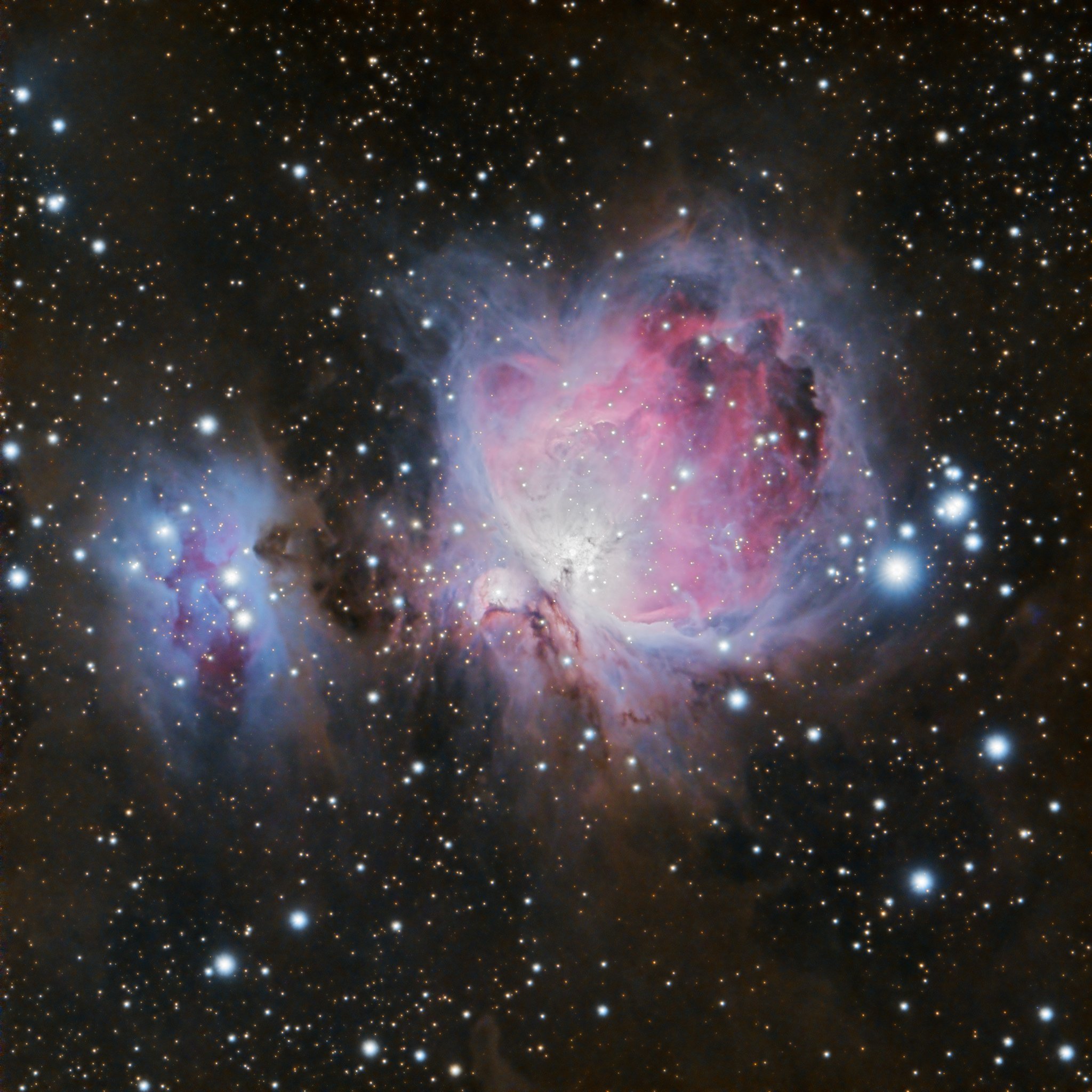phil on Nostr: The Orion Nebula, M42, captured from my backyard in April 2022. I posted this earlier ...
The Orion Nebula, M42, captured from my backyard in April 2022.
I posted this earlier with Olas for #olas365 but I thought I would post it as a regular note too with some details of how it was captured for any one interested.
This image was made up 122 x 60 second subexposures that were captured using a William Optics ZenithStar 61mm II telescope and a ZWO ASI533MC astrophotography camera. The sensor on these astrophotography cameras is cooled (down to -5°C) to reduce noise.
The telescope was mounted on a Skywatcher EQM-35 equatorial mount. Equatorial mounts compensate for the rotation of the earth to keep the object being photographed in the same position in the frame and avoid blur due to the motion. A small guide scope and second camera were also used with PHD2 which is software that locks on to a star and makes small corrections to the mount for any tracking errors. Astro Photography Tool (APT) was the software used to automate the process of capturing the subexposures.
PixInsight was used to process all of the subexposures and create the final image. This software does things such as aligning each subexposure based on the stars detected, stacking the images, applying corrections using calibration images, noise removal, colour correction etc.
#astrophotography
I posted this earlier with Olas for #olas365 but I thought I would post it as a regular note too with some details of how it was captured for any one interested.
This image was made up 122 x 60 second subexposures that were captured using a William Optics ZenithStar 61mm II telescope and a ZWO ASI533MC astrophotography camera. The sensor on these astrophotography cameras is cooled (down to -5°C) to reduce noise.
The telescope was mounted on a Skywatcher EQM-35 equatorial mount. Equatorial mounts compensate for the rotation of the earth to keep the object being photographed in the same position in the frame and avoid blur due to the motion. A small guide scope and second camera were also used with PHD2 which is software that locks on to a star and makes small corrections to the mount for any tracking errors. Astro Photography Tool (APT) was the software used to automate the process of capturing the subexposures.
PixInsight was used to process all of the subexposures and create the final image. This software does things such as aligning each subexposure based on the stars detected, stacking the images, applying corrections using calibration images, noise removal, colour correction etc.
#astrophotography

